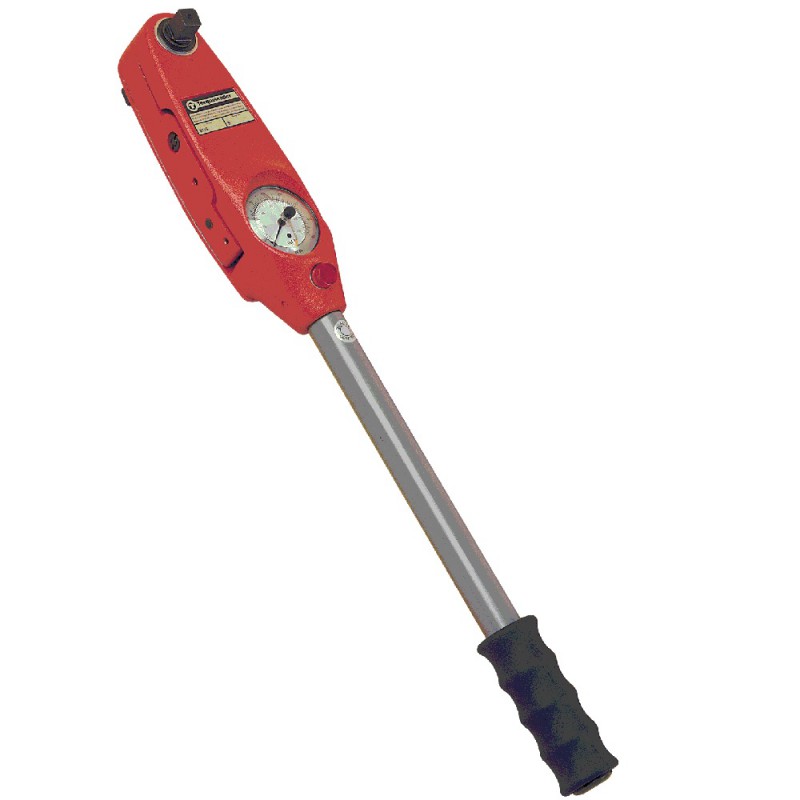mikeymo wrote:Brucey wrote:I feel a bit guilty because I may have first mentioned 'zero'. In fact many wrenches say to turn the adjustment down to the minimum rated value in the instructions, eg here;
https://www.tekton.com/manuals/manual_24340.pdf
where 25ftlbs is the minimum value.
At this point there is still a fair amount of load on the knuckle inside the wrench so parts are not going to move or come adrift. In theory, in most cases it ought to still be OK at a genuine zero, i.e. the knuckle should not be loose inside, but if you stray past zero into a negative setting then pretty much anything can happen.
The chances of something bad happening and the nature of it vary with the exact design of the wrench; the one in the manual above is a fairly common design, but there are many possible variations. IIRC in the design above the knuckle ('roller bearing' part) may rotate when there isn't enough load on it and this can throw the wrench completely out of whack. in other apparently similar designs the part that bears against the knuckle either itself turns or doesn't and this changes the chances of something bad happening unless the knuckle is actually loose inside. In others the knuckle works against a pin that can come out of position and again the wrench cannot work once this has happened.
Being able to carry out some kind of rudimentary check on the calibration of clicker wrenches is a very useful thing to be able to do.
cheers
My point exactly. My torque wrenches don't have a marking of 'zero' or 0 of any sort at all. The markings stop at their lowest rated value for each wrench. So if I continue to turn down attempting to find 'zero' I won't, so perhaps I'll just guess and probably guess wrong. With whatever consequences. This is what I've done with mine, IIRC. Teng, in one of their web pages, also say 'zero'. The printed instructions say minimum. I'll alert them to the ambiguity. This is partly my fault for not reading the instructions with enough care. But at least this discussion has clarified the issue for me.
Casual or colloquial use of language which has actual technical meaning is frequently understood to be colloquial. And may well be acceptable, depending on context. So two friends discussing a recent illness and describing it as "chronic" or "acute" might very well just mean "really bad". If one of them is a medical practitioner you would expect her to perhaps clarify the meaning. And if they are BOTH medical practitioners, and at work, you would hope that they would use those terms with their exact medical meaning. I suppose "plethora" might be a better example.
In the context of this discussion, it is quite possible that two experienced mechanics working together might say, when one borrows the other's torque wrench - "remember to zero it when you've finished Pete". It may be incorrect (depending on manufacturer's instructions), but hopefully they would understand each other. Although the arrogance of surety that experience and qualifications bring is as equally distributed amongst the manual trades as it is amongst the professions, in my experience. Fortunately we musicians have the binary reminder of our imperfection, the wrong note, which quickly corrects any mistaken self-image of perfection we have adopted.
But when one is giving advice to someone who it is assumed has less knowledge or experience of a subject than oneself, then the wise course is to adopt their perspective. I know that "the bottom string" of the guitar means the lowest sounding. So do my fellow guitarists and most players of other instruments would understand. But several times each day I have to remind my students that the "bottom string" is actually the one furthest away from the ground. So I try to use language precisely, and clarify if necessary.
OP, if you buy a torque wrench, get a good one and read the manufacturer's instructions for its care.
.....and. there endeth today's sermon - hopefully.

